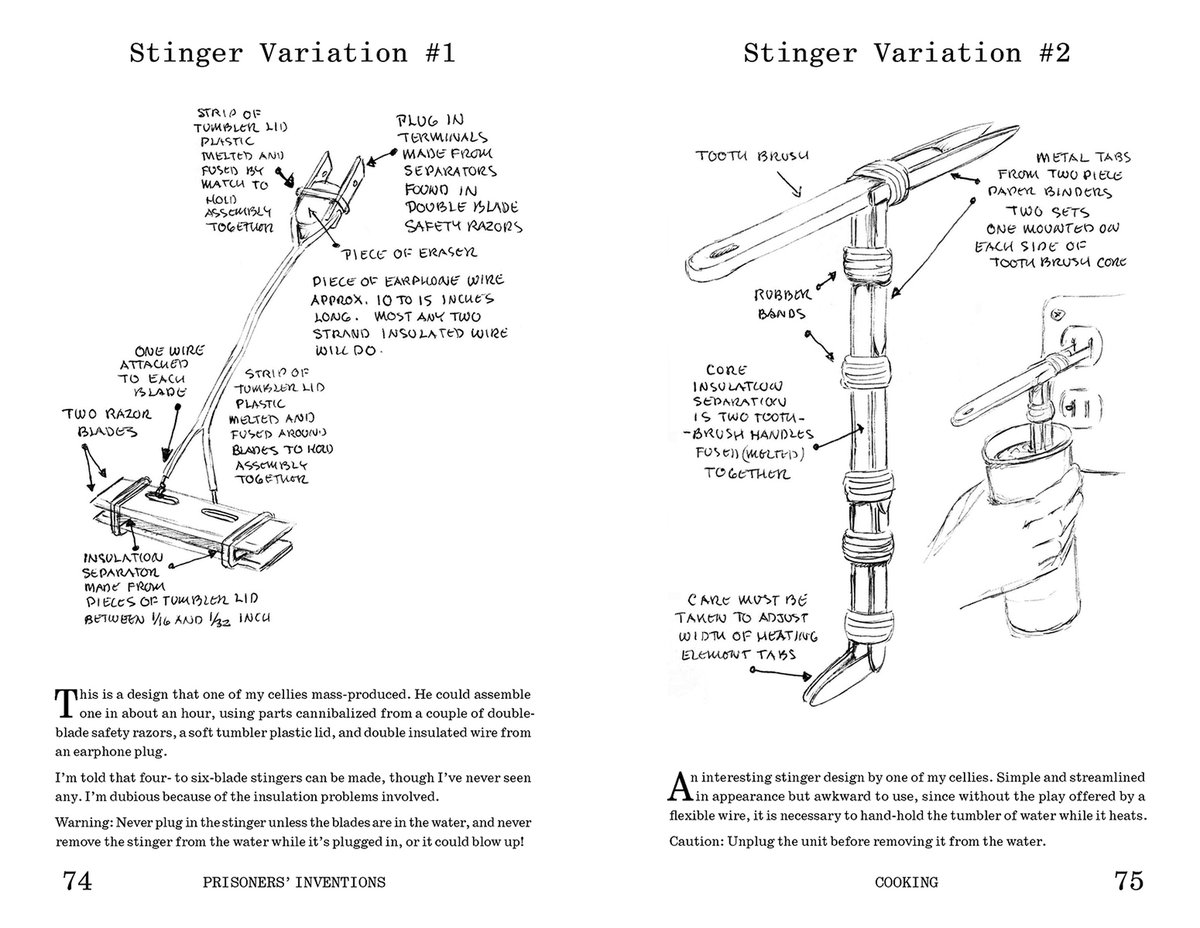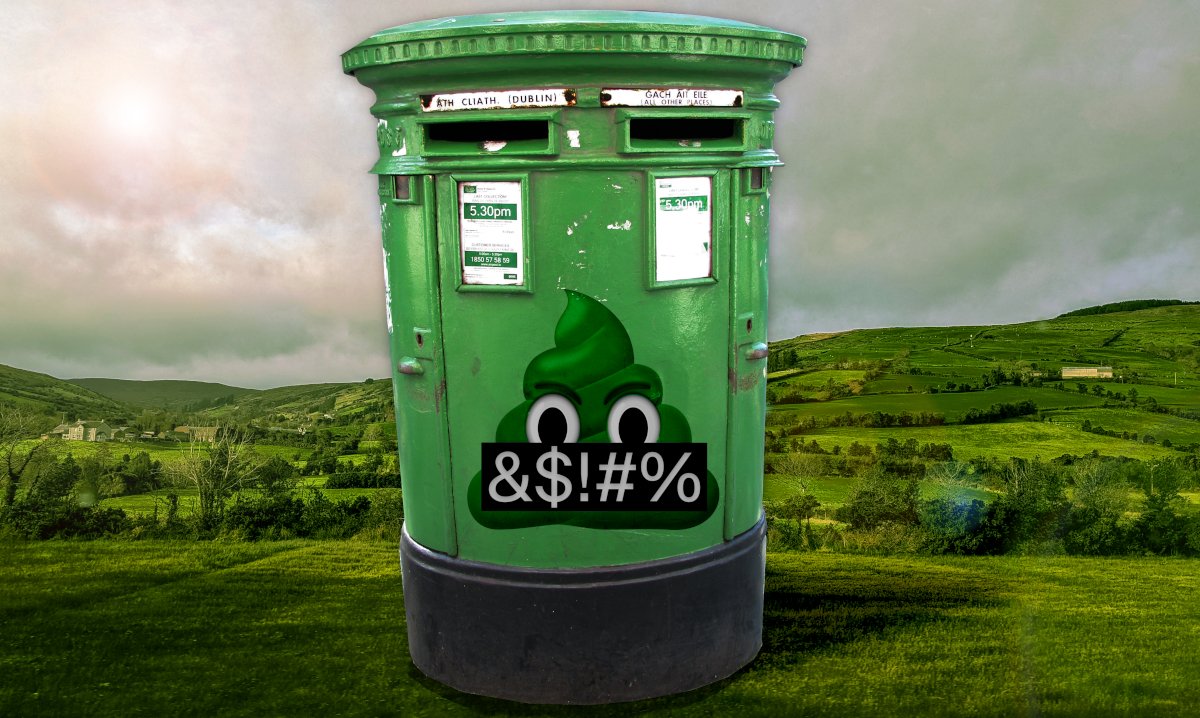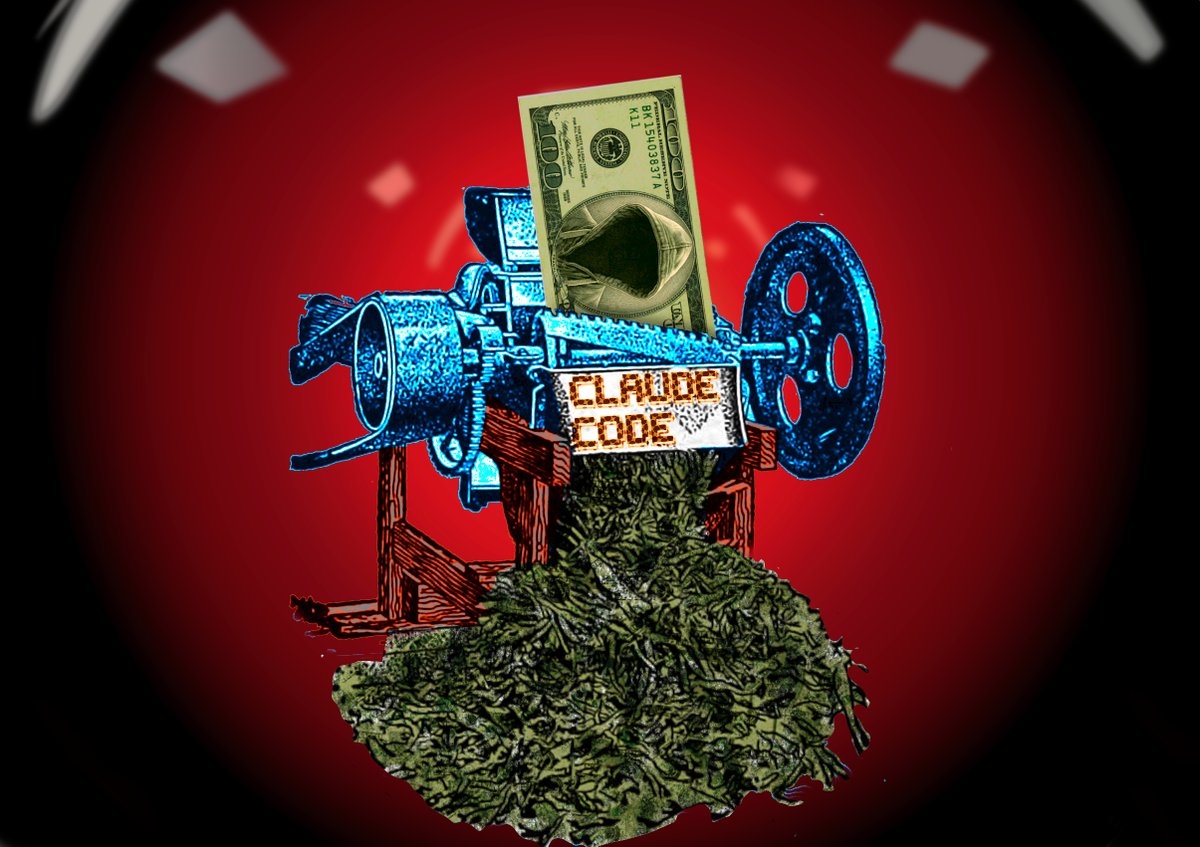2003's PRISONERS INVENTIONS is an underground classic, a high-stakes precursor to MAKE Magazine, combining ingenuity, adversarial interoperability, and user-centered design. After 13 years out of print, @halfletter's published a new, expanded edition.
halfletterpress.com/prisoners-inve…
1/
halfletterpress.com/prisoners-inve…
1/

If you'd like an unrolled version of this thread to read or share, here's a link to it on pluralistic.net, my surveillance-free, ad-free, tracker-free blog:
pluralistic.net/2021/06/09/kin…
2/
pluralistic.net/2021/06/09/kin…
2/
Prisoners' Inventions was created by Angelo, a pseudonymous, long-serving incarcerated American who entered into a collaboration with the Temporary Services collective, who both published Angelo's work and staged multiple gallery showings of his work.
3/
3/

For these shows, museum workers followed Angelo's finely drafted, detailed drawings and notes to recreate the inventions he'd documented, recreating his cell from the floorplans and elevations he'd supplied.
4/
4/

The new edition documents these showings, and the absurd ways that Angelo experienced them - for example, when a guard discovered a postcard with a recreation of Angelo's cell, he was convinced that this was evidence that someone had smuggled a digital camera into the prison.
5/
5/

So realistic was the reproduction - so precise and faithful were Angelo's plans - that the warden took extensive persuading to be convinced that the digital camera theory was a paranoid guard's fantasy.
6/
6/
The anaecdote illustrates the core attraction of PRISONERS' INVENTIONS: not just that Angelo has a fine, expressive draftsman's hand, nor that his accompanying text makes for an economical, shrewdly observed ethnography of the tools and their users.
7/
7/

But rather that this ingenuity is an act of survival and resistance, created under harsh conditions where each inventor must create the tools to fashion the tools - under adversarial conditions where all-powerful enemies can smash everything and set the makers back to zero.
8/
8/

In some regards, it's like a for-real version of those neo-neolithic Youtubers who show how to bootstrap advanced tooling from raw materials. In others, it's a physical version of the beloved first-person accounts of daring feats recounted in the pages of @2600.
9/
9/

This is true #AdversarialInteroperability - treating the environment as a puzzle and a challenge, to be deconstructed and reconfigured by toolsmiths for their users' benefit, overcoming both user-hostile designs and policing by the original designers' armed enforcers.
10/
10/

Reading Angelo's tales of his fellow toolsmiths' ingenuity, I was reminded of the thrill and dread I experience each time I reread James Clavell's first novel, KING RAT, a fictionalized account of his incarceration in the infamous Changi death-camp.
en.wikipedia.org/wiki/King_Rat_…
11/
en.wikipedia.org/wiki/King_Rat_…
11/

I always lingered over Clavell's description of the POWs' ingenuity, from the contraband radio inside hidden water-bottle compartments that had to be clipped together when the conspirators gathered to tune into war news, or how tailors practiced their trade behind the wire.
12/
12/

This is the true hacker mindset, the combination of playfulness, lateral thinking, user-centered design, and pitting your wits against brutal authority. It's part of a lineage that includes classics like STEAL THIS BOOK.
mindcontrol-research.net/wp-content/upl…
13/
mindcontrol-research.net/wp-content/upl…
13/

The illustrations in Steal This Book are strikingly similar to those in Prisoners' Inventions, though Angelo's prose is sharper and less self-indulgent.
14/
14/

Equally, Prisoners' Inventions recalls wartime pamphlets like the famous MEND AND MAKE DO, with their emphasis on thrift and finding creature comforts under conditions of indefinite hardship and privation.
bl.uk/learning/timel…
15/
bl.uk/learning/timel…
15/

Many of the inventions Angelo catalogues are about creating space for comfort out of miserable conditions. The prisoners who make greeting-card pigments by scraping ink off magazine ads and mixing it with body-lotion embrace the Mend and Make Do ethos as much as anyone.
16/
16/
Prisoners' Inventions deserves a spot on your shelf between your MAKE Magazines and your copy of PRISON RAMEN, a bridge between those two worlds.
bbc.com/news/world-us-…
17/
bbc.com/news/world-us-…
17/

I long treasured my 2003 copy of the original. Last year, my office flooded and I lost my whole bottom shelf of books. I salvaged just two: that 2003 edition and the illustrated history of Dachau my parents gave me when we visited the camp when I was 12.
18/
18/

Both books recorded prisoners' resistance, the humanity of caged people in inhumane circumstances - and both do so from the perspective of the incarcerated, just as King Rat does. These are powerful stories that shaped my view of the world and are never far from my mind.
19/
19/
As the new edition's introduction notes, Angelo died in Dec 2016 in LA, three years after his release from more than two decades of incarceration. He was days away from his 73rd birthday.
us6.campaign-archive.com/?u=b8471866234…
20/
us6.campaign-archive.com/?u=b8471866234…
20/
He spent his brief years of freedom watching and cataloging films he sourced from thrift stores and other secondary sources, living a quiet and mostly solitary life.
21/
21/
The new edition is a tribute to Angelo. America continues to incarcerate more people than any nation in human history.
eof/
eof/
• • •
Missing some Tweet in this thread? You can try to
force a refresh










